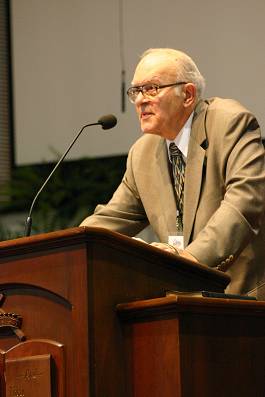 1 John 2
1 John 2
7 Beloved, I am writing you no new commandment, but an old commandment that you had from the beginning. The old commandment is the word that you have heard. 8 At the same time, it is a new commandment that I am writing to you, which is true in him and in you, because the darkness is passing away and the true light is already shining. 9 Whoever says he is in the light and hates his brother is still in darkness. 10 Whoever loves his brother abides in the light, and in him there is no cause for stumbling. 11 But whoever hates his brother is in the darkness and walks in the darkness, and does not know where he is going, because the darkness has blinded his eyes. 12 I am writing to you, little children, because your sins are forgiven for his name’s sake. 13 I am writing to you, fathers, because you know him who is from the beginning. I am writing to you, young men, because you have overcome the evil one. I write to you, children, because you know the Father. 14 I write to you, fathers, because you know him who is from the beginning. I write to you, young men, because you are strong, and the word of God abides in you, and you have overcome the evil one.
I recently finished reading a biography of J. Heinrich Arnold entitled Homage to a Broken Man. I can honestly say it was one of the more powerful and beautiful books I have ever read. J. Heinrich Arnold was the son of Eberhard Arnold who founded the Bruderhof in Germany in the first half of the twentieth century. The Bruderhof, which is still in operation in various branches in the United States and around the world, began as an intentional effort at living out the Sermon on the Mount and teachings of Christ in the world. The story follows the ups and downs of the Bruderhof community with special focus on J. Heinrich Arnold and his family.
At a certain point, Heinrich and his wife are sent to lead the Woodcrest Bruderhof community in Rifton, New York. The Bruderhof community they were coming from (at “Primavera” in Paraguay) had been torn by dissension and strife and Heinrich himself had suffered a great injustice there. What the Arnolds encountered in Woodcrest was quite different.
One thing that struck Heiner and Annemarie almost daily was how straightforward people were at Woodcrest. Not always and not everyone, to be sure; but still, there were none of the intrigues and decades-long grudges that had come to poison Primavera. Instead, there was an insistence on open, honest relationships, and people took literally the “First Law in Sannerz,” a brief house rule Heiner’s father had composed in 1925: There is no law but love. Love is joy in others. What then is anger at them? Words of love convey the joy we have in the presence of our brothers and sisters. It is out of the question to speak about another person in a spirit of irritation or vexation. There must never be talk, either in open remarks or by insinuation, against any brother or sister, or against their individual characteristics – and under no circumstances behind their back. Gossiping in one’s family is no exception. Without this rule of silence there can be no loyalty and thus no community. Direct address is the only way possible; it is the brotherly or sisterly service we owe anyone whose weaknesses cause a negative reaction in us. An open word spoken directly to another person deepens friendship and will not be resented. Only when two people do not come to an agreement quickly is it necessary to draw in a third person whom both of them trust. In this way they can be led to a solution that unites them on the highest and deepest levels.[1]

 Mark 5
Mark 5 Exodus 22
Exodus 22
 Job 36
Job 36 For a long time now I have been intrigued by intentional Christian communal experiments. I used to live about a half hour away from Koinonia Farms, Clarence Jordan’s community in Americus, Georgia (which, incidentally, makes a fascinating appearance in Mommsen’s book), and would go by from time to time to visit. Similarly, like many people, I have been intrigued with groups like the Amish, the Mennonites, and the Hutterites, though never uncritically so. I have been interested in the Bruderhof, a German Anabaptist group foundered by Eberhard Arnold, since I read Arnold’s anthology of patristic statements,
For a long time now I have been intrigued by intentional Christian communal experiments. I used to live about a half hour away from Koinonia Farms, Clarence Jordan’s community in Americus, Georgia (which, incidentally, makes a fascinating appearance in Mommsen’s book), and would go by from time to time to visit. Similarly, like many people, I have been intrigued with groups like the Amish, the Mennonites, and the Hutterites, though never uncritically so. I have been interested in the Bruderhof, a German Anabaptist group foundered by Eberhard Arnold, since I read Arnold’s anthology of patristic statements,  An Announcement
An Announcement